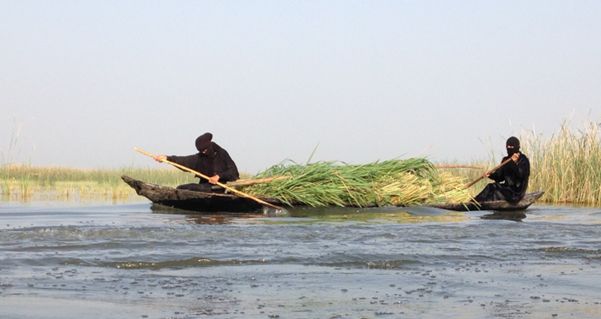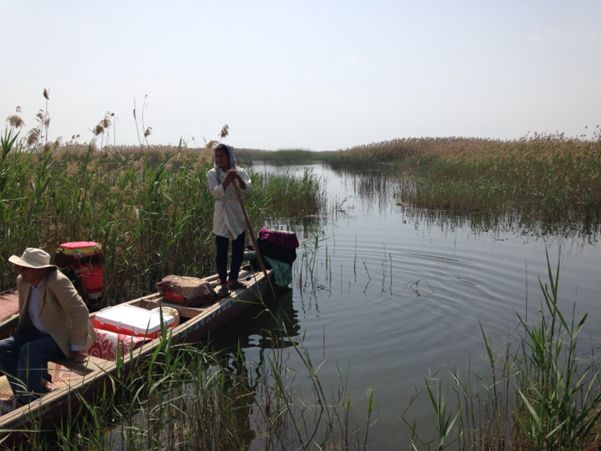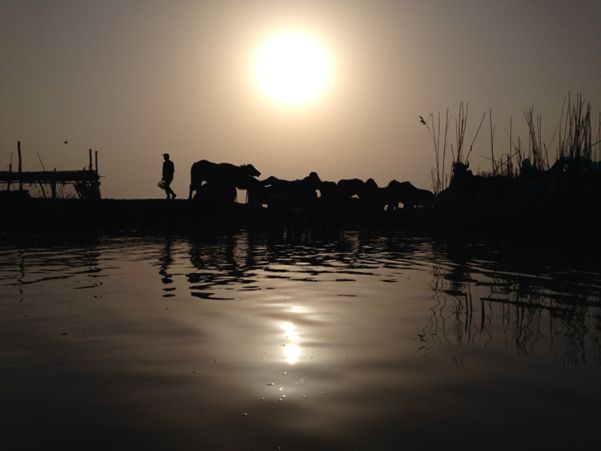Archaeological Pasts and Sustainable Futures in Iraq’s Marshlands

This Glasgow Centre for International Development (GCID) funded project explores the cultural heritage of Iraq’s wetland marshes (the Ahwar) and their Ahwari inhabitants. The Ahwar is an area of vast cultural importance, as the region in which the first cities in the world developed over 5,000 years ago, as well as ecological importance, as one of the world’s largest inland delta systems and carbon sinks in an extremely hot, arid, environment. Yet, due to regional hydro-politics and the unmitigated effects of climate change, the Ahwar is rapidly disappearing.
Archaeological interpretations of the region’s past, developed in a colonial context and perpetuated post-independence, have long contributed to the shaping of these unsustainable water management policies and the social exclusion of Ahwari communities. This project combines 1) a historiographic investigation of the archaeology of the marshes with 2) a participatory research program with Ahwari communities to understand their (dis)connection with archaeological heritage and the potential impacts of developing more inclusive, multi-vocal archaeological stories.
Aims of the Project

We aim to understand ancient and modern land use in this highly dynamic wetland landscape, focusing on archaeological narratives, human-environment relationships, and their wider association with issues of social marginalisation and displacement.
The approaches used by the project include archival research, exploring the historiography of the archaeological discipline, its storytelling techniques and their political embeddedness, as well as sociological approaches, involving interviews with local inhabitants and stake-holders with the aim of knowledge co-production. We believe that providing Ahwaris with a voice on their past and their future heritage is critical to social cohesion, political inclusion, ecological conservation and resilience. Ultimately, we aim to help restore the fractured links between people and nature, as well as between environmental issues and local and national policy making.
The project is led by Dr Daniel Calderbank (University of Glasgow) and Dr Jaafar Jotheri (University of Al-Qadisiyah), in partnership with Aphrodite Sorotou, the Iraqi State Board of Antiquities and Heritage (SBAH), as well as local museums and conservation groups.
Project Members

Dr Daniel Calderbank (University of Glasgow)
Dr Jaafar Jotheri (University of Al-Qadisiyah)
Aphrodite Sorotou (Independent Researcher)

